Ideas have consequences so today Joe Miller and Leroy Hill are joined by Owen Anderson to offer a biblically sound and philosophically robust discussion of Friedrich Nietzsche 1886 book Beyond Good and Evil. They’ll show how Nietzsche’s atheist morality lies beneath many of today’s social conflicts. Through their witty banter, the guys till the soil of culture to sow the seed of the Gospel. Listen to discover how these ideas have shaped the Western worldview and maybe even deformed the worldview of many Christians.
REFERENCES
10 Books that Screwed Up the World: And 5 Others That Didn't Help by Benjamin Wiker
EPISODES IN THIS SERIES
10 Books that Screwed Up the World
If you want to understand the culture, you need to understand philosophy. But if that task seems overwhelming, this podcast series is just for you.
STUDY GUIDE
This episode of raZe the roof features a dialogue about Friedrich Nietzsche's worldview expressed in his book Beyond Good and Evil. The conversation explores Nietzsche's atheistic philosophy, its critique of traditional morality, particularly Christian "slave morality," and its concept of the "will to power."
SUMMARY OF THE BIG IDEAS
Leading up to today’s episode on Nietzsche, we’ve covered seven very different thinkers. Below is a simple phrase useful for memorizing the big idea behind each man’s worldview.
Machiavelli’s big idea: "The goal of power justifies the means.”
Descartes’ big idea: “I think therefore I am.”
Hobbes’ big idea: “Brutish man needs a social contract for happiness.”
Rousseau’s big idea: “Man is born free but the arts and sciences put flowers over the chains of civilization that enslave us.” Or possibly, “Man is born good, but private property corrupts him.”
Marx/Engels’ big idea: “The history of all societies, past, present and future, is the history of class struggle.”
Mill’s big idea: “The greatest happiness is the greatest good; The greatest suffering is the greatest evil”
Darwin’s big idea: “The good of society is the survival of the fittest race of man.”
Nietzsche’s big idea: “God is dead and life is now about each man’s will to power.” Or possibly as a fun mnemonic device, that emphasizes his ethic of conquest we could say “veni, vidi, Nietzsche.”
DISCUSSION POINTS
Below is a list of questions covering just a few of the big ideas discussed in this episode. Subscribers, feel free to weigh in with your own ideas and join me in the conversation.
Discuss the key biographical events in Nietzsche's early life and academic career. How might these events have shaped his philosophical outlook?
Analyze the different perspectives presented in the podcast on Nietzsche's philosophical style and impact. Is he primarily a systematic thinker, a rebellious iconoclast, or something else?
Explain the concept of "God is dead" in Nietzsche's philosophy. What are the implications of this idea for morality and the future of humanity?
Compare and contrast Nietzsche's concept of the Übermensch with Darwinian ideas of survival of the fittest (you may want to listen to our episode on Darwin). In what ways do these men differ in their understanding of human potential and the driving forces of human development?
What are some of the potential dangers and negative consequences associated with a Nietzschean worldview, particularly in relation to morality, power, and the value of individual human life?
GLOSSARY
Will to Power: Nietzsche’s concept describing the fundamental drive of individuals to assert their strength, creativity, and dominance, rather than merely survive.
Ubermensch: Translated as "Superman" or "Overman," it represents Nietzsche’s ideal of a self-creating individual who rises above conventional morality to define their own values.
God is Dead: Nietzsche’s famous proclamation from The Gay Science and Thus Spoke Zarathustra, signifying the loss of belief in traditional Christian values and the challenge of creating meaning without them.
Slave Morality: Nietzsche’s term for moral systems, particularly Christianity, that he believed promote weakness, humility, and conformity, suppressing individual greatness.
Master Morality: Contrasted with slave morality, this is Nietzsche’s ideal of a morality based on strength, independence, and self-assertion, as exemplified by aristocratic values.
Herd Animals: Nietzsche’s derogatory term for people who conform to societal norms and democratic ideals, lacking individuality or the courage to create their own values.
Dionysian - A Nietzschean concept inspired by the Greek god Dionysus, representing intuitive, passionate, and chaotic living, in contrast to rational or Apollonian restraint.
Dionysian Mentality: Derived from the philosophy of Friedrich Nietzsche, particularly in his work The Birth of Tragedy. It refers to a worldview or psychological state inspired by Dionysus, the Greek god of wine, ecstasy, fertility, and ritual madness. This mentality contrasts with the "Apollonian mentality," which represents order, reason, and harmony.
Common Good: A concept Nietzsche critiques as a conformist ideal that suppresses individual greatness, associated with democratic and Christian ethics.
Logos - In the context of the discussion, refers to rational, coherent thought or the Christian concept of divine order, which Nietzsche rejects in favor of intuitive, non-rational living.
Romanticism: A philosophical and artistic movement influencing Nietzsche, emphasizing emotion, intuition, and individualism, which he applies to his vision of the Ubermensch.
Sheeple: A modern term used in the discussion to describe people who blindly follow societal norms, echoing Nietzsche’s critique of herd mentality.
Manosphere: A contemporary cultural phenomenon mentioned in the podcast, reflecting Nietzschean ideas of masculine dominance and rebellion against perceived societal constraints.


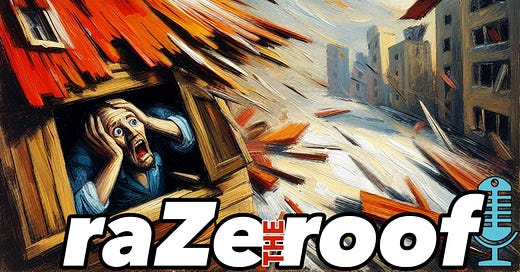




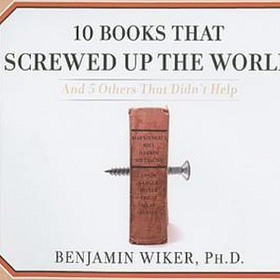



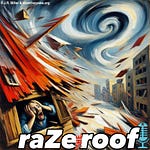
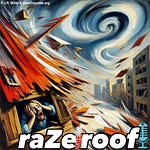

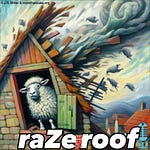

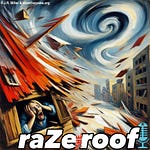
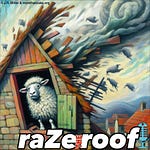
Share this post